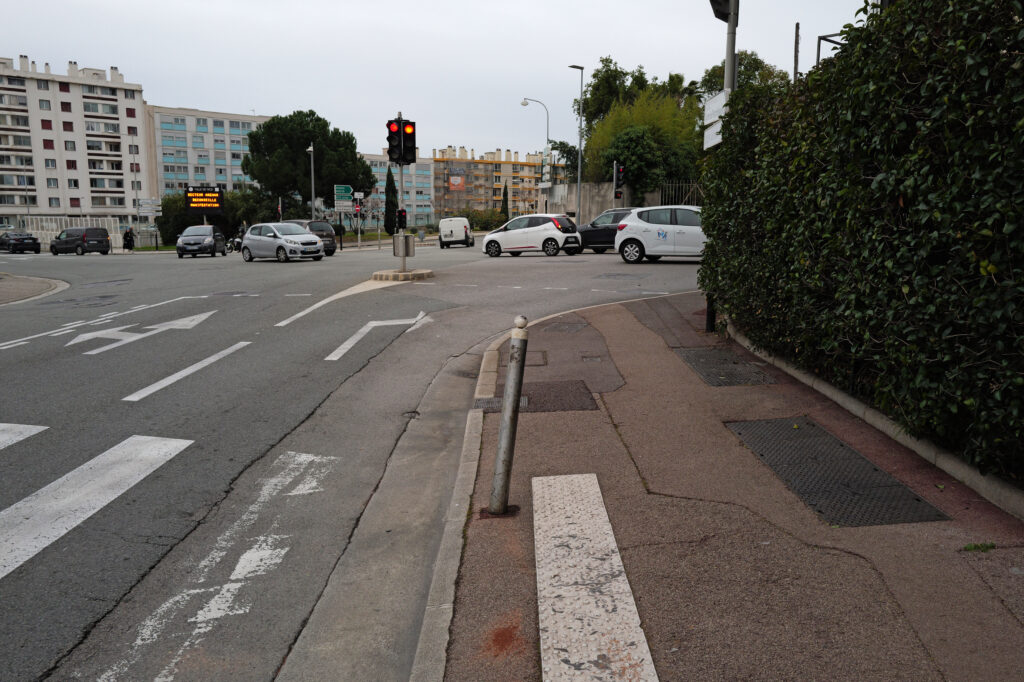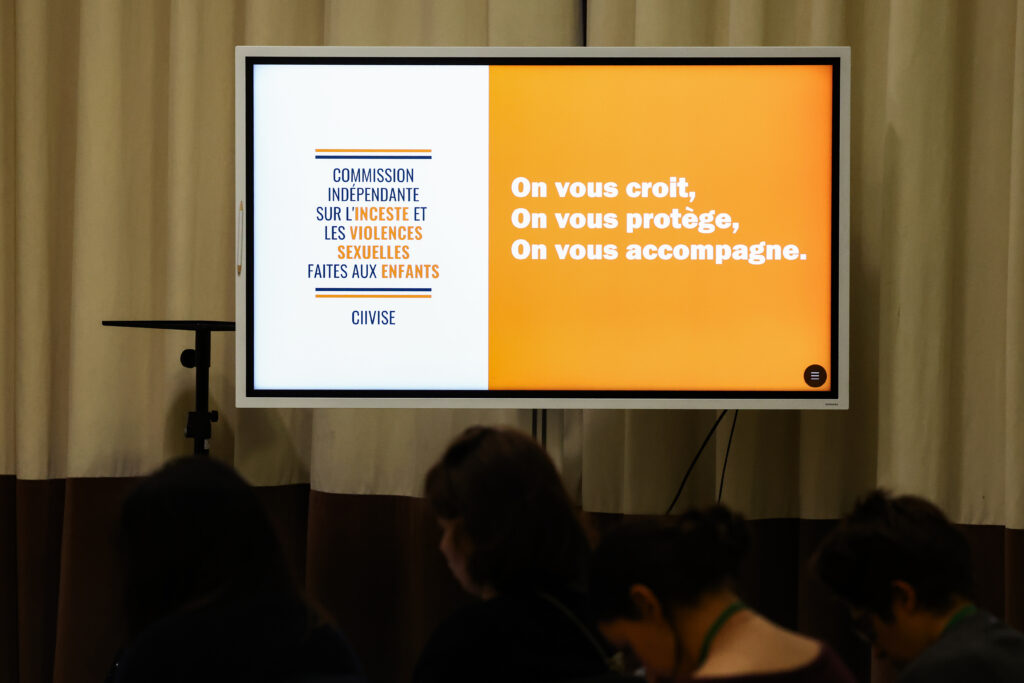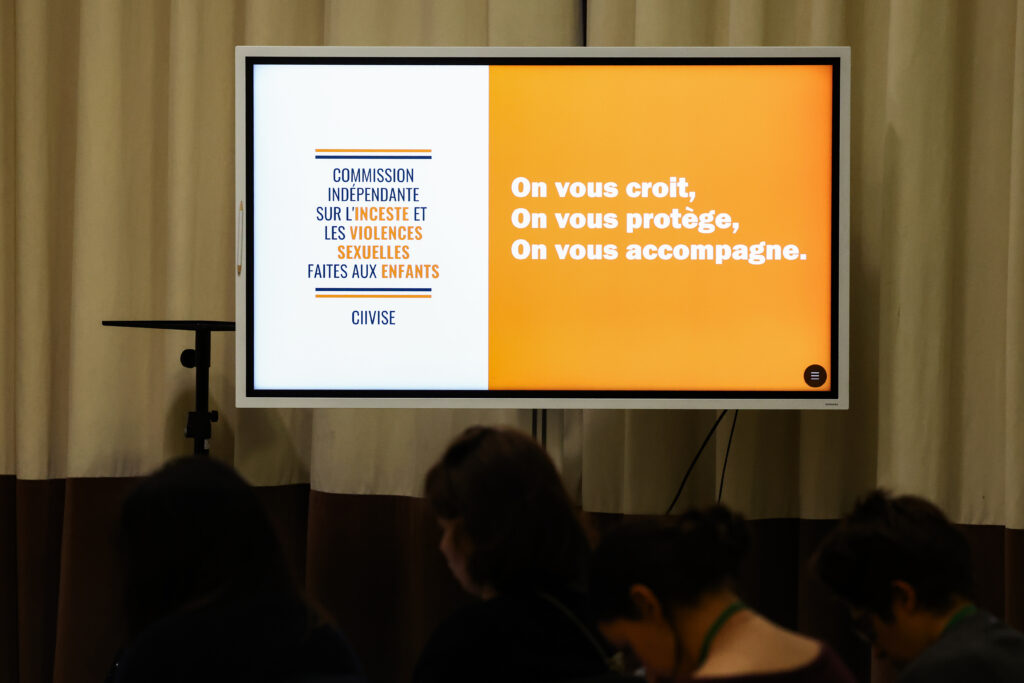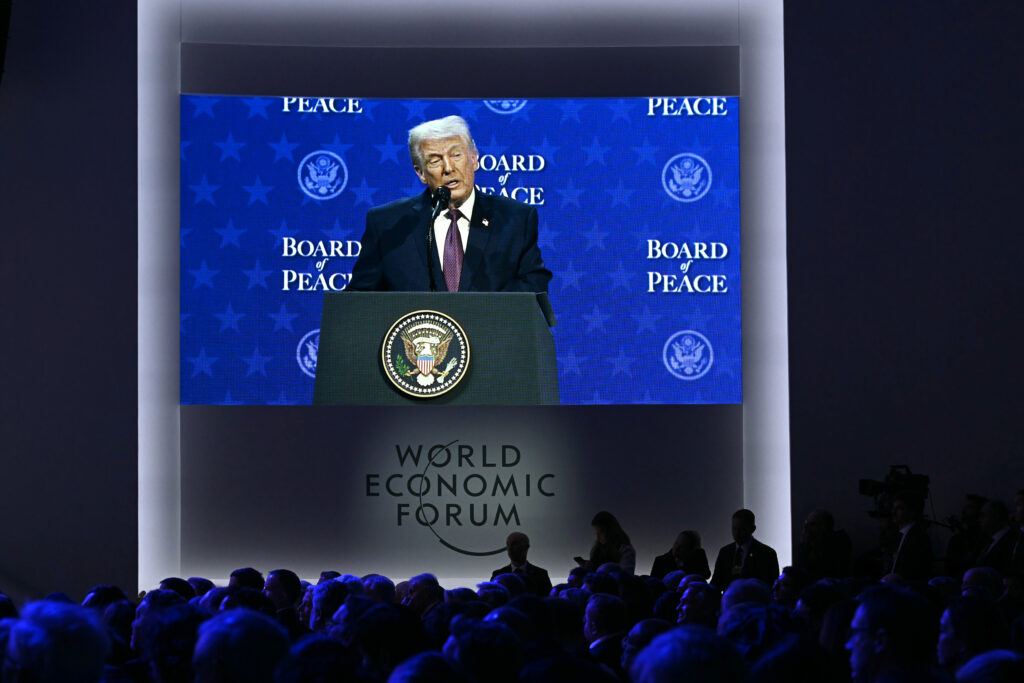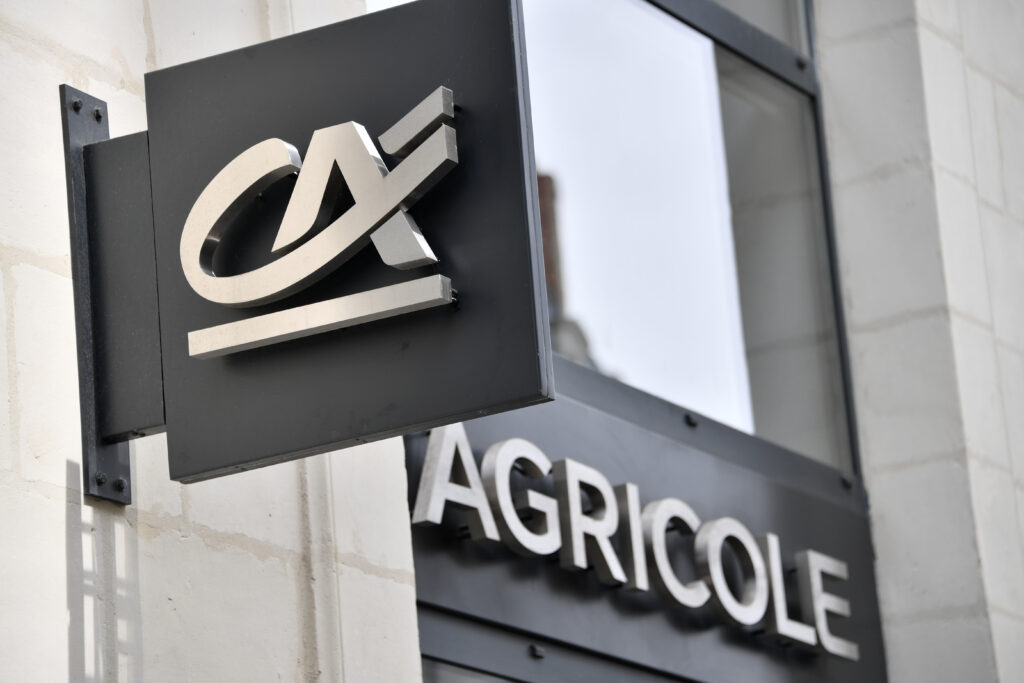Femme abattue devant son bébé à Nice: la piste intrafamiliale privilégiée
La piste intrafamiliale est privilégiée à Nice au lendemain de l’assassinat d’une jeune femme dans une voiture devant son bébé, un acte “barbare”, selon les candidats aux municipales, qui a conduit plusieurs d’entre eux à suspendre leur campagne jusqu’à dimanche.Le drame a eu lieu mercredi peu après 18H00, à une intersection proche d’un lycée dans l’ouest de la ville. Un homme circulant à scooter s’est porté à la hauteur de la conductrice et a tiré à une dizaine de reprises à bout portant à travers la vitre du véhicule, a détaillé le procureur de Nice, Damien Martinelli, dans un communiqué.Arrivés rapidement sur les lieux, les pompiers ne sont pas parvenus à réanimer la jeune femme mais ont pu prendre en charge l’enfant de sept mois, qui était sur le siège passager dans son fauteuil bébé et miraculeusement indemne.La police a rapidement retrouvé le scooter juste derrière la gare, selon le parquet, qui a annoncé l’ouverture, jeudi soir, “d’une information judiciaire du chef de meurtre avec préméditation.”Le propriétaire du deux-roues s’est présenté à la police et a été placé en garde à vue, avait déjà indiqué le procureur.Selon une source policière, le petit ami de la victime a lui aussi été entendu et, selon une source judiciaire, il ne s’agit pas du propriétaire du scooter.Si le déroulement des faits pouvait initialement laisser penser à la piste d’un homicide sur fond de criminalité organisée, les enquêteurs ont recueilli “des éléments relatifs à une piste intrafamiliale”, explique le procureur.Ils s’intéressent au beau-père du petit ami de la victime, un homme d’environ 45 ans, placé en garde à vue la semaine dernière pour des violences aggravées sur la mère du compagnon de la défunte.- Intervention du Raid -Cet homme, jusque-là connu de la justice uniquement pour conduite sans permis, avait été déféré dimanche et placé sous contrôle judiciaire avec interdiction d’approcher cette femme, détaille le parquet.Tard mercredi soir, le Raid est intervenu pour tenter d’interpeller le suspect à son domicile mais il ne s’y trouvait pas et est désormais activement recherché, selon une source policière.Selon plusieurs médias locaux, cette intervention a eu lieu au sein d’une école située dans le nord de Nice, où l’homme travaillait et disposait d’un logement. Jeudi dans la matinée, le calme régnait aux abords de l’établissement, selon une journaliste de l’AFP.”De très nombreuses investigations sont en cours pour localiser le ou les personnes impliquées et préciser les circonstances et le motif des faits”, ajoute le procureur qui a ouvert dès mercredi soir une enquête pour meurtre aggravé, confiée à la police judiciaire du département.Ce fait divers a immédiatement fait réagir les candidats aux municipales à Nice. Le maire sortant Christian Estrosi (Horizons) a parlé sur le réseau social X d’un “acte d’une barbarie inouïe”. Un qualificatif repris par Juliette Chesnel-Le Roux (PS-PCF-Verts) qui s’est dite “sidérée et révoltée” par “cette violence d’une barbarie absolue”.Cette dernière a suspendu sa campagne pour trois jours, appelant les autres candidats à faire de même dans un geste d’unité et de responsabilité pour “ne jamais banaliser l’inacceptable” dans un “engagement constant contre les violences faites aux femmes”.Eric Ciotti, candidat UDR-RN, a accepté la proposition “face au choc immense qui a frappé notre ville”.L’équipe de campagne de M. Estrosi a pour sa part évoqué des consignes pour qu’aucune action militante ne soit menée, “dans un esprit de solidarité et de décence”, tandis que le maire a proposé d’accorder le statut de pupille de Nice à l’enfant pour l’accompagner jusqu’à sa majorité.
US arrests women who disrupted church over Minnesota immigration crackdown
The US attorney general announced Thursday the arrest of two women who allegedly disturbed a church service while protesting the massive immigration crackdown in Minnesota, as Vice President JD Vance prepared to visit the state.Nekima Levy Armstrong and Chauntyll Louisa Allen were arrested in connection with a Sunday protest at Cities Church in the state capital St. Paul, Attorney General Pam Bondi announced on X.St. Paul and the neighboring metropolis of Minneapolis have been the epicenter of a major deployment of federal agents by the Trump administration to the Democratic-led northern US state.Tensions have flared in the state over a wave of arrests and the killing of protester Renee Good by an Immigration and Customs Enforcement (ICE) agent.Vance, who has aggressively defended the officer who killed Good, was due in Minnesota later Thursday and is expected to meet ICE officers, as well as community and business figures.Good, 37, was shot dead in her car by the ICE officer on January 7.Homeland Security Investigations and FBI “agents executed an arrest in Minnesota,” US Attorney General Pam Bondi wrote on X.”So far, we have arrested Nekima Levy Armstrong, who allegedly played a key role in organizing the coordinated attack on Cities Church in St. Paul, Minnesota. We will share more updates as they become available. Listen loud and clear: WE DO NOT TOLERATE ATTACKS ON PLACES OF WORSHIP.” She later wrote that officers had also arrested Allen for the action where an immigration official was apparently leading a service, according to US media.”WE WILL PROTECT OUR HOUSES OF WORSHIP,” she posted.FBI Director Kash Patel posted on X that Armstrong had been arrested under the FACE Act, a law intended to protect those seeking to access abortion clinics and places of worship.Minnesota has sought a temporary restraining order for the ICE operation in the state which, if granted by a federal judge, would pause the sweeps. There will be a hearing on the application Monday.There have been confrontations between federal agents and protesters who have demanded a full investigation of Good’s killing, with officers frequently deploying pepper spray and tear gas.A number of school children have walked out of classes in protest at the ICE operation in the city.The officer who fired the shots that killed Good, Jonathan Ross, has neither been suspended nor charged with any crime. Trump and his officials quickly defended his actions as being legitimately made in self-defense.The federal immigration sweeps in Minneapolis occurred amid a highly politicized fraud investigation in Minnesota.
La Ciivise décapitée, plongée dans une nouvelle crise
La Ciivise est à nouveau plongée dans la crise, décapitée après la démission de deux de ses trois dirigeants, l’association Face à l’Inceste dénonçant un “climat délètère” et un “musèlement de la parole”.Face à l’Inceste a annoncé jeudi “claquer la porte” de la Commission indépendante sur l’inceste et les violences sexuelles faites aux enfants (Ciivise) en affirmant que “la parole des victimes n’est plus la boussole” de la commission.Celle-ci “se distancie des promesses faites aux victimes”, a affirmé à l’AFP la présidente de l’association, Solène Podevin-Favre, membre du collège directeur de la Ciivise depuis avril 2024.Un autre membre du triumvirat directeur, le pédopsychiatre Thierry Baubet, spécialiste du psychotrauma, avait annoncé sa démission mercredi, invoquant sur le réseau LinkedIn “des désaccords sur des décisions prises et sur les modalités de fonctionnement”.La Ciivise a été lancée en 2021 dans le sillage des révélations de “La Familia Grande” de Camille Kouchner. Elle est chargée de conseiller le gouvernement dans la lutte contre l’inceste. Face à l’Inceste était associée depuis le début.Sous la houlette de l’emblématique juge Edouard Durand, la Commission a recueilli 30.000 témoignages de victimes et remis en novembre 2023 un rapport de 82 préconisations pour protéger les enfants contre les violences sexuelles et accompagner les adultes qui en ont été victimes. Très peu se sont concrétisées.”Certains, au sein de la commission, remettent en cause les 82 recommandations”, dénonce Solène Podevin-Favre.Ils “se refusent à penser des questions centrales comme l’ordonnance de protection immédiate de l’enfant, l’inclusion des cousins comme auteurs incestueux, l’élaboration d’une infraction spécifique d’inceste, l’imprescriptibilité”, précise Face à l’Inceste dans un communiqué.Ces démissions laissent la magistrate Maryse Le-Men-Regnier seule à la tête de la Ciivise.Comptant plus d’une trentaine de membres experts (issus de la santé, la police, la justice), la Ciivise s’est divisée notamment sur le sujet polémique de l’imprescriptibilité des violences sexuelles sur mineurs, avec des échanges très tendus, selon des sources internes.Le secrétaire général de la Ciivise, Denis Roth-Fichet, assure à l’AFP que la commission n’a “jamais remis en cause une seule recommandation et a fortiori pas celle portant sur l’imprescriptibilité des crimes sexuels dont l’inceste”.”Un débat a été organisé mardi au sein de la Ciivise où nous nous sommes interrogés sur les moyens de répondre à la demande sociale d’imprescriptibilité tout en prenant en compte les contraintes de sa mise en œuvre”, dit-il. – Mission indépendante d’appui -La ministre des Familles Stéphanie Rist, qui a reçu jeudi Solène Podevin, a souhaité le lancement d’une “mission indépendante d’appui à la transformation de la Ciivise, afin de garantir la continuité” des travaux, “en engageant les évolutions nécessaires sur le plan des méthodes de travail, de l’organisation interne”.Depuis le départ du juge Durand, la Ciivise a connu de nombreux problèmes de gouvernance, avec notamment début 2024 la démission de sa vice-présidente, Caroline Rey-Salmon, visée par une plainte pour agression sexuelle dans le cadre d’une expertise médicale, aujourd’hui classée, puis de son président Sébastien Boueilh.Ces soubresauts ont laissé “des stigmates et des rancœurs”, selon M. Roth-Fichet, qui cherche à les “apaiser” et “regrette personnellement” les démissions.Mme Podevin a dénoncé aussi le manque de moyens accordés à la Ciivise depuis la mise à l’écart du juge Durand fin 2023. “Le gouvernement a maintenu la Ciivise mais en la vidant de moyens et de sens. Elle n’a plus qu’un secrétaire général et une deuxième personne depuis début janvier. Ce sont des moyens dérisoires. Nous sommes tous bénévoles”, a-t-elle souligné.”Le président de la République avait dit aux victimes qu’il ferait évoluer les lois. Cinq ans plus tard, les évolutions juridiques se comptent sur les doigts d’une seule main”, déplore-t-elle.”L’expertise, les données, les recommandations, tout est sur la table. Si une politique publique, volontaire, transversale n’est pas décidée, c’est un choix politique”, selon elle.L’association va se consacrer à la coopération avec des parlementaires pour faire avancer des textes qui reprennent des recommandations de la Ciivise. Plusieurs sont en préparation, notamment sur l’imprescriptibilité des crimes sexuels sur mineurs, l’inclusion des cousins dans la définition de l’inceste ou encore la création d’une ordonnance de protection pour les enfants.
La Ciivise décapitée, plongée dans une nouvelle crise
La Ciivise est à nouveau plongée dans la crise, décapitée après la démission de deux de ses trois dirigeants, l’association Face à l’Inceste dénonçant un “climat délètère” et un “musèlement de la parole”.Face à l’Inceste a annoncé jeudi “claquer la porte” de la Commission indépendante sur l’inceste et les violences sexuelles faites aux enfants (Ciivise) en affirmant que “la parole des victimes n’est plus la boussole” de la commission.Celle-ci “se distancie des promesses faites aux victimes”, a affirmé à l’AFP la présidente de l’association, Solène Podevin-Favre, membre du collège directeur de la Ciivise depuis avril 2024.Un autre membre du triumvirat directeur, le pédopsychiatre Thierry Baubet, spécialiste du psychotrauma, avait annoncé sa démission mercredi, invoquant sur le réseau LinkedIn “des désaccords sur des décisions prises et sur les modalités de fonctionnement”.La Ciivise a été lancée en 2021 dans le sillage des révélations de “La Familia Grande” de Camille Kouchner. Elle est chargée de conseiller le gouvernement dans la lutte contre l’inceste. Face à l’Inceste était associée depuis le début.Sous la houlette de l’emblématique juge Edouard Durand, la Commission a recueilli 30.000 témoignages de victimes et remis en novembre 2023 un rapport de 82 préconisations pour protéger les enfants contre les violences sexuelles et accompagner les adultes qui en ont été victimes. Très peu se sont concrétisées.”Certains, au sein de la commission, remettent en cause les 82 recommandations”, dénonce Solène Podevin-Favre.Ils “se refusent à penser des questions centrales comme l’ordonnance de protection immédiate de l’enfant, l’inclusion des cousins comme auteurs incestueux, l’élaboration d’une infraction spécifique d’inceste, l’imprescriptibilité”, précise Face à l’Inceste dans un communiqué.Ces démissions laissent la magistrate Maryse Le-Men-Regnier seule à la tête de la Ciivise.Comptant plus d’une trentaine de membres experts (issus de la santé, la police, la justice), la Ciivise s’est divisée notamment sur le sujet polémique de l’imprescriptibilité des violences sexuelles sur mineurs, avec des échanges très tendus, selon des sources internes.Le secrétaire général de la Ciivise, Denis Roth-Fichet, assure à l’AFP que la commission n’a “jamais remis en cause une seule recommandation et a fortiori pas celle portant sur l’imprescriptibilité des crimes sexuels dont l’inceste”.”Un débat a été organisé mardi au sein de la Ciivise où nous nous sommes interrogés sur les moyens de répondre à la demande sociale d’imprescriptibilité tout en prenant en compte les contraintes de sa mise en œuvre”, dit-il. – Mission indépendante d’appui -La ministre des Familles Stéphanie Rist, qui a reçu jeudi Solène Podevin, a souhaité le lancement d’une “mission indépendante d’appui à la transformation de la Ciivise, afin de garantir la continuité” des travaux, “en engageant les évolutions nécessaires sur le plan des méthodes de travail, de l’organisation interne”.Depuis le départ du juge Durand, la Ciivise a connu de nombreux problèmes de gouvernance, avec notamment début 2024 la démission de sa vice-présidente, Caroline Rey-Salmon, visée par une plainte pour agression sexuelle dans le cadre d’une expertise médicale, aujourd’hui classée, puis de son président Sébastien Boueilh.Ces soubresauts ont laissé “des stigmates et des rancœurs”, selon M. Roth-Fichet, qui cherche à les “apaiser” et “regrette personnellement” les démissions.Mme Podevin a dénoncé aussi le manque de moyens accordés à la Ciivise depuis la mise à l’écart du juge Durand fin 2023. “Le gouvernement a maintenu la Ciivise mais en la vidant de moyens et de sens. Elle n’a plus qu’un secrétaire général et une deuxième personne depuis début janvier. Ce sont des moyens dérisoires. Nous sommes tous bénévoles”, a-t-elle souligné.”Le président de la République avait dit aux victimes qu’il ferait évoluer les lois. Cinq ans plus tard, les évolutions juridiques se comptent sur les doigts d’une seule main”, déplore-t-elle.”L’expertise, les données, les recommandations, tout est sur la table. Si une politique publique, volontaire, transversale n’est pas décidée, c’est un choix politique”, selon elle.L’association va se consacrer à la coopération avec des parlementaires pour faire avancer des textes qui reprennent des recommandations de la Ciivise. Plusieurs sont en préparation, notamment sur l’imprescriptibilité des crimes sexuels sur mineurs, l’inclusion des cousins dans la définition de l’inceste ou encore la création d’une ordonnance de protection pour les enfants.
Après le recul de Trump sur le Groenland, les Européens restent prudents
Soulagés mais pas dupes. Après le recul de Donald Trump sur le Groenland, les dirigeants européens ont appelé jeudi soir à la vigilance, au début d’un sommet consacré aux relations de leurs pays avec les Etats-Unis.Après une “forme d’escalade” et de “menaces”, “nous sommes revenus à une situation beaucoup plus acceptable” mais il faut rester “vigilant”, a résumé le président français Emmanuel Macron, à son arrivée à Bruxelles. Il a aussi appelé les Etats-Unis à “respecter” l’Europe.Les Européens acceptent le “leadership” américain mais pas la “domination” ni la “coercition”, a aussi prévenu le Premier ministre polonais Donald Tusk.Rudoyés par le président américain depuis son retour au pouvoir, les Vingt-Sept ont entamé l’année dans un état de sidération, confrontés à l’hypothèse que leur allié historique puisse recourir à la force pour s’emparer du territoire autonome danois.Si le milliardaire a, pour l’heure, écarté ce scénario et renoncé à imposer de nouveaux droits de douane après un “cadre” d’accord conclu mercredi à Davos, les Européens appellent à la prudence.”Tout le monde considère que la voie qui a été ouverte, qui engagera le Danemark et l’Otan, est bienvenue”, assure un diplomate européen, s’exprimant sous couvert d’anonymat. “Tout le monde considère également qu’il convient de maintenir unité, solidarité et vigilance”, résume-t-il.Peu de détails ont fuité sur ce qui a été conclu à propos du Groenland eu cours d’une réunion mercredi entre le secrétaire général de l’Otan Mark Rutte et Donald Trump.Moi-même, “je ne sais pas ce que contient exactement l’accord concernant mon pays”, a déploré jeudi le Premier ministre groenlandais Jens-Frederik Nielsen, pendant une conférence de presse à Nuuk, la capitale du Groenland.Mais la souveraineté et l’intégrité territoriale de cette île constituent une “ligne rouge”, a-t-il souligné, plaidant pour un “dialogue pacifique” dans le respect du “droit à l’autodétermination” des Groenlandais.Une source au fait des discussions a assuré à l’AFP que les Etats-Unis et le Danemark allaient notamment renégocier leur accord de défense sur le Groenland datant de 1951.C’est “tout ce que nous voulions”, s’est réjoui le président américain en annonçant ce “cadre” et l’abandon de ses menaces.Tous les pays de l’Otan sont d’accord pour une “présence permanente de l’Alliance dans l’Arctique et autour du Groenland”, a affirmé la Première ministre danoise Mette Frederiksen à Bruxelles.- “Trump a franchi le Rubicon” -Faut-il vraiment croire cependant que Donald Trump a fait marche arrière pour de bon ? Et qu’il ne redonnera pas des sueurs froides aux Européens sur d’autres dossiers, que ce soit sur l’Ukraine ou lié à ses tentatives de remodeler l’ordre international avec son “Conseil de paix” ?Dès jeudi après-midi, le président américain a repris un ton menaçant, promettant des “représailles” si les Européens commençaient à vendre de la dette américaine.Autant de raisons pour les dirigeants européens de maintenir leur sommet à Bruxelles, portant très sobrement sur “les relations transatlantiques” – victimes ces derniers mois de secousses à répétition.”Trump a franchi le Rubicon. Il pourrait recommencer”, alerte un diplomate européen auprès de l’AFP, jugeant qu'”il n’y a pas de retour en arrière possible”, dans les relations entre le Vieux continent et les Etats-Unis. “On reste à un tweet près de la prochaine crise”, a averti un autre diplomate.Avant de se rendre à Bruxelles, le chancelier allemand Friedrich Merz s’est inquiété que Washington ait radicalement remodelé sa “politique étrangère”.Il a exhorté ses “amis européens” à “investir massivement dans nos capacités de défense” et à “rendre nos économies plus compétitives”.Pour d’autres responsables, il faut continuer à réfléchir à ce que pourrait être une riposte européenne face au gouvernement Trump — non pas pour l’activer immédiatement mais en prévision du cas, considéré comme probable, où de nouvelles menaces viendraient à émerger.Un diplomate européen veut ainsi croire que la promesse d’une réaction forte de l’UE et d’une utilisation de son arsenal commercial, y compris l’outil anticoercition comparé par certains à un “bazooka”, a poussé Donald Trump à changer de pied sur le Groenland.”La fermeté et l’unité de l’UE ont contribué à le faire changer de position”, assure-t-il. “Tout comme évidemment les pressions politiques internes aux Etats-Unis et la réaction des marchés boursiers”.La relation transatlantique demeure “extrêmement importante” mais, “quand quelqu’un se met à casser la porcelaine de la famille, vous vivez avec l’idée que cela peut recommencer chaque jour”, conclut cette source diplomatique. max-fpo-cjc-adc/ob/bds
Cacophonie dans l’enseignement catholique au sujet d’une fermeture de Bétharram
Fermera, fermera pas ? La structure associative qui fédère la gestion des établissements scolaires catholiques a annoncé jeudi la fin prochaine du site de Bétharram, au cœur d’un scandale de violences physiques et sexuelles, avant d’être démentie par le secrétariat général du secteur, rattaché à l’Église.”Le mot Bétharram doit être envoyé aux oubliettes de l’Histoire”, a déclaré sur la radio RTL, à la mi-journée, Pierre-Vincent Guéret, président de la Fédération nationale des organismes de gestion de l’enseignement catholique (Fnogec), qui chapeaute le fonctionnement des établissements.Depuis deux ans, près de 250 plaintes ont été déposées par d’anciens élèves de Notre-Dame-de-Bétharram auprès du parquet de Pau, mettant en cause des prêtres et des laïcs pour des faits commis entre la fin des années 1950 et le début des années 2000.”Le symbole doit disparaître”, a ajouté le responsable, précisant que l’ensemble scolaire fondé en 1837 à Lestelle-Bétharram (Pyrénées-Atlantiques), rebaptisé Le Beau Rameau depuis 2009, aurait fermé ses portes “à l’été” et que ses élèves actuels poursuivraient leur scolarité dans l’établissement catholique d’une commune voisine, Igon.Son annonce a rapidement été saluée par le principal porte-parole des victimes, Alain Esquerre, et les députés Violette Spillebout (Renaissance) et Paul Vannier (LFI), co-rapporteurs d’une commission d’enquête parlementaire – née du scandale – sur le contrôle par l’État des établissements scolaires, publics et privés.Mais les propos de M. Guéret ont été démentis, dans l’après-midi, par le Secrétariat général de l’Enseignement catholique (Sgec), chargé de “mettre en œuvre la politique” du secteur en accord avec la Conférence des évêques de France.”Il n’est pas question de fermeture de l’établissement à ce stade”, a assuré cette instance dans un communiqué, saluant le travail engagé par la direction du Beau Rameau pour “rétablir la confiance et la sérénité”, ce qui “demande temps et discernement”.Une mission visant à “renouveler en profondeur la gouvernance de l’Enseignement catholique” doit par ailleurs être lancée lundi, selon le Sgec.- “Dissonance” -“Querelle de chefs”, balaie Alain Esquerre, ancien élève de Bétharram qui fut à l’origine de la révélation du scandale, auquel il a consacré un livre. Selon lui, l’établissement est dans une situation financière “catastrophique” et sa fermeture est bien actée, les parents d’élèves en étant informés.”Sans Ogec, il n’y a pas de financement public et le fonctionnement ne peut perdurer dans son cadre actuel”, abonde le député Paul Vannier, interrogé par l’AFP.”Cette dissonance démontre que l’enseignement catholique est mal à l’aise dans les mesures à prendre”, juge de son côté Violette Spillebout, qui appelait “depuis longtemps”, avec son collègue co-rapporteur, à la fermeture de ce “lieu de terribles souffrances”. Quinze prêtres, presque tous décédés, et quatre laïcs ont été mis en cause. Mais seules deux plaintes ont échappé à la prescription, conduisant à la mise en examen, pour viol et agression sexuelle, d’un ex-surveillant placé en détention.Des violences avaient déjà été dénoncées dans les années 1990 mais la parole des anciens élèves ne s’est libérée qu’à partir de l’automne 2023, dénonçant fellations et masturbations forcées, passages à tabac, humiliations et supplices.Des faits pour lesquels la congrégation des pères de Bétharram a reconnu sa responsabilité, l’an dernier après que le scandale eut éclaté, et compte indemniser toutes les victimes.Selon le président de la Fnogec, fermer l’établissement nécessite l’accord de cette communauté religieuse, dont le siège est à Rome. “Si celle-ci ne s’engage pas, on les attaquera en justice”, a lancé M. Guéret au micro de RTL.Dans un communiqué, la congrégation de Bétharram a rappelé qu’elle n’avait plus, depuis juillet, la tutelle sur l’établissement béarnais, exercée désormais par celle des Filles de la Croix, implantée à Igon.Elle reste cependant propriétaire des murs, a précisé à l’AFP son vicaire régional, Jean-Marie Ruspil.slb-cg-cas-ppy/tsq/asm
Le Crédit Agricole en grève pour la rémunération et l’emploi
La colère sociale monte au sein des caisses régionales du Crédit Agricole: plusieurs syndicats ont appelé à un débrayage jeudi, regrettant des augmentations de salaires insuffisantes l’an dernier et la mise en place d’un plan de transformation menaçant l’emploi.Les quelque 78.000 salariés de la fédération nationale du Crédit Agricole (FNCA), qui regroupe les 39 caisses régionales et plusieurs filiales associées (spécialisées dans l’informatique ou la formation par exemple) ont été invités à arrêter le travail deux heures jeudi, voire une demi-journée ou une journée pour ceux qui le souhaitent.Le taux de grévistes varie fortement en fonction des caisses, ont indiqué deux syndicats à l’AFP, et allait jusqu’à 40 à 50% en Normandie Seine.”Ce sont des milliers de salariés qui ont manifesté leur mécontentement, du jamais vu”, a déclaré à l’AFP Samuel Mathieu, président du Sneca, lié à la la CFE-CGC.La direction fait quant à elle état d’une “participation très faible”, inférieure à 5% à la mi-journée.A Paris, une vingtaine de salariés de la caisse régionale d’Ile-de-France se sont rassemblés devant le siège, a constaté une journaliste de l’AFP.”Les augmentations générales de salaires sont bloquées à 0,5% (…) c’est insatisfaisant. Et le Crédit Agricole a les moyens d’augmenter nos salaires”, a déploré Corinne Kazmierczak, porte-parole du Sneca CFE-CGC Ile-de-France.Elle dénonce également des restructurations qui n’ont pour objectif, selon elle, que la rentabilité.La grève est rare dans le secteur bancaire, d’autant plus dans une banque mutualiste comme le Crédit Agricole.Contacté par l’AFP, le secrétaire national Sud-Crédit agricole Mutuel (Sud-Cam) Jean-Yves Salvat dénonce de son côté un “manque de respect” de la direction dans les négociations salariales menées en fin d’année dernière, et souhaite leur réouverture.Les syndicats n’ont pas digéré l’échec de ces négociations, qui se sont soldées par une augmentation générale d’environ 0,5%.”La négociation a été forcément une négociation difficile”, concède auprès de l’AFP François-Xavier Heulle, directeur général adjoint de la FNCA en charge des ressources humaines, mettant en avant la part supplémentaire d’augmentations individuelles à la discrétion des caisses régionales, qui sont des banques coopératives autonomes.- “Efficacité” -Les syndicats se mobilisent également contre les potentiels effets d’un plan de mutualisation de certains métiers porté par la direction, baptisé “efficacité”.Ce programme vise à “être un peu plus +industriel+ dans la façon de traiter les opérations” parmi les caisses régionales du Crédit Agricole, explique de son côté le directeur adjoint de la FNCA en charge de la transformation et de la performance, Eric Gonce.Le Crédit Agricole “travaille depuis toujours et en continu sur l’amélioration et l’optimisation de ses offres, ses process, ses parcours clients et collaborateurs. Cette démarche n’implique pas de plan de réduction d’effectifs”, écrit jeudi la banque dans un communiqué.L’objectif du plan se limite à “essayer de baisser la masse salariale en regroupant des services partout en France”, balaye M. Salvat, qui cite en exemple une menace sur 150 postes dans la caisse régionale du Centre Ouest, qui regroupe les départements de la Haute-Vienne et de l’Indre.Le responsable syndical souhaite être davantage “associé” au projet “efficacité”, en négociant réellement les mesures d’accompagnement pour les salariés.Les syndicats sont également attentifs au nombre d’agences, dont la baisse s’est amorcée au tournant des années 2010, selon un décompte tenu par Sud-cam.Le syndicat constate une accélération du phénomène, avec 112 agences fermées l’an dernier, deux fois plus que les années précédentes.Le Crédit Agricole ne fait pas face à des problèmes de rentabilité: le bénéfice net part du groupe des caisses régionales approche des 3,2 milliards d’euros pour les trois premiers trimestres de 2025.La banque a vu l’arrivée en mai 2025 d’un nouveau directeur général au sein de l’entité cotée du groupe (Casa), Olivier Gavalda.Les craintes sur l’emploi dans l’industrie bancaire se matérialisent en outre jeudi pour deux concurrents du Crédit Agricole.Société Générale a ainsi annoncé un projet de réorganisation qui prévoit la suppression de 1.800 postes en France d’ici à fin 2027, sans procéder à un plan de départs, quand BNP Paribas envisage une réorganisation de sa filiale de gestion d’actifs.

